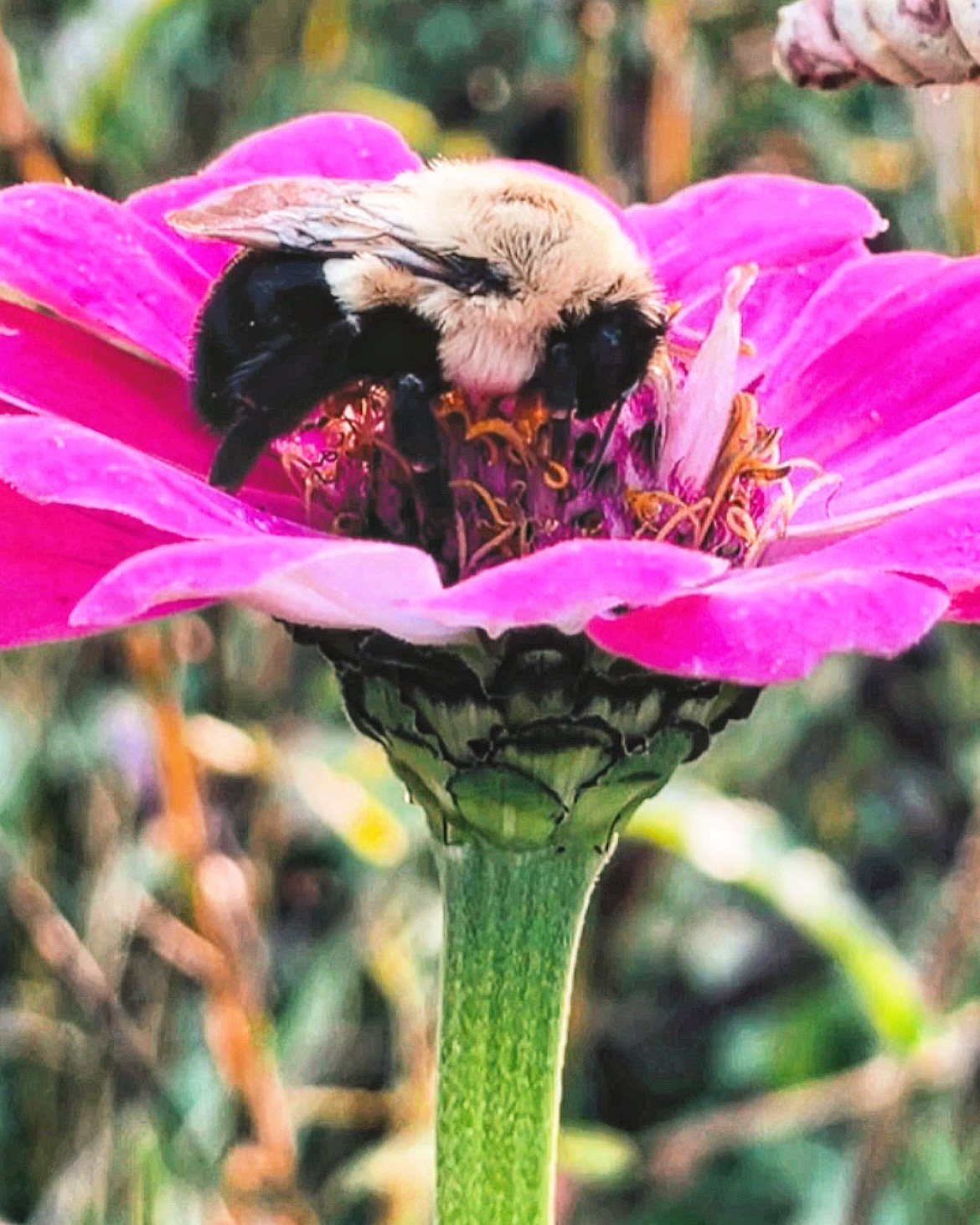Let’s face it: bees have historically gotten a bad rap. Sure, their stingers are something to be aware of, particularly if you’re allergic, but generally speaking, a bee’s stinger is only a weapon of last resort. Especially hesitant to sting are our precious native bumble bees which I liken to tiny flying teddy bears. Bees spend their lives helping sustain the ecosystem by pollinating plants all around us, and they don’t get enough credit for their tireless efforts. Luckily, that is starting to change.
Pollinators are vital to the ability of plants in our yards, parks, and farms to reproduce, yet pollinator populations are in sharp decline because of the prevalence of pesticides, fragmentation of our open space, and decimation of the native plant population that they depend upon to survive. Monarch butterfly populations, for example, have declined by over 94 percent in the last 20 years, according to the US Wildlife Federation, and native bee populations have also seen a dramatic decline.
Spring is the perfect time to get outside and explore the beautiful environments that these pollinators help sustain! Over the last few months, Sustainable Plymouth has collaborated with organizations across town to promote existing pollinator projects and resources right here in America’s Hometown. The Town of Plymouth is now a proud member of the National Pollinator Pathway. Community pollinator pathway projects seek to connect properties and establish corridors so these pollinators can thrive and continue to fulfill this vital role in our local ecosystem. So far, we’ve been able to showcase over 10 properties (all of which are open to the public) from Wildlands Trust, Mass Audubon, the Plymouth County Sheriff’s Farm, Manomet Observatory, Plimoth Patuxet, Plymouth Public Library, Myles Standish State Forest and Town of Plymouth. A complete list of these properties can be found here.
And this is just the beginning. We hope to be able to encourage the creation of additional pollinator-friendly habitats throughout our community on parcels owned by the town, by private entities, businesses, and individual residents. If you’re interested in making your property more pollinator-friendly you can eliminate the use of pesticides, plant more of the native plants pollinators have evolved to depend on, reduce your lawn size and/or participate in No Mow May or Leave the Leaves in the fall and winter. Learn more tips from the Pollinator Pathway website.
Together we can support our native bees, butterflies, and birds’ habitats so they can continue their irreplaceable role in helping local plants thrive and reproduce. So don’t be afraid of your local bees; they’re just doing their thing out there, same as the rest of us. They are an important part of the biodiversity which we all depend on.
If you’re aware of a property that should be added to the Pollinator Pathway site for Plymouth, please email SustainablePlymouth@gmail.com. Looking to explore more of Plymouth’s open space while you’re at it? Check out this trail guide.
Andrea Dickinson
Dickinson is a member of the Plymouth Open Space Committee and the Sustainable Plymouth advisory board.

